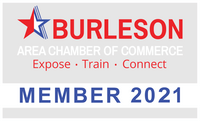Newborn Hearing Screenings in Burleson, TX
Because of the need for prompt identification of and intervention for childhood hearing loss, universal newborn hearing screening programs currently operate in all U.S. states and most U.S. territories. With help from the federal government, every state has established an Early Hearing Detection and Intervention program. As a result, more than 96 percent of babies have their hearing screened within 1 month of birth.
Why is it important to have my baby’s hearing screened early?
The most important time for a child to learn language is in the first 3 years of life, when the brain is developing and maturing. In fact, children begin learning speech and language in the first 6 months of life. Research suggests that children with hearing loss who get help early develop better language skills than those who don’t.
When will my baby’s hearing be screened?
Your baby’s hearing should be screened before he or she leaves the hospital or birthing center. If your baby’s hearing was not tested within the first month of life, or if you haven’t been told the results of the hearing screening, ask your child’s doctor today. Quick action will be important if the screening shows a possible problem.
How will my baby’s hearing be screened?
A newborn undergoes a hearing screening. Your baby can rest or sleep during both tests.
Otoacoustic emissions (OAE) test whether some parts of the ear respond to sound. During this test, a soft earphone is inserted into your baby’s ear canal. It plays sounds and measures an “echo” response that occurs in ears with normal hearing. If there is no echo, your baby might have hearing loss.
This information is from the NIH Publication No. 11–4968.


